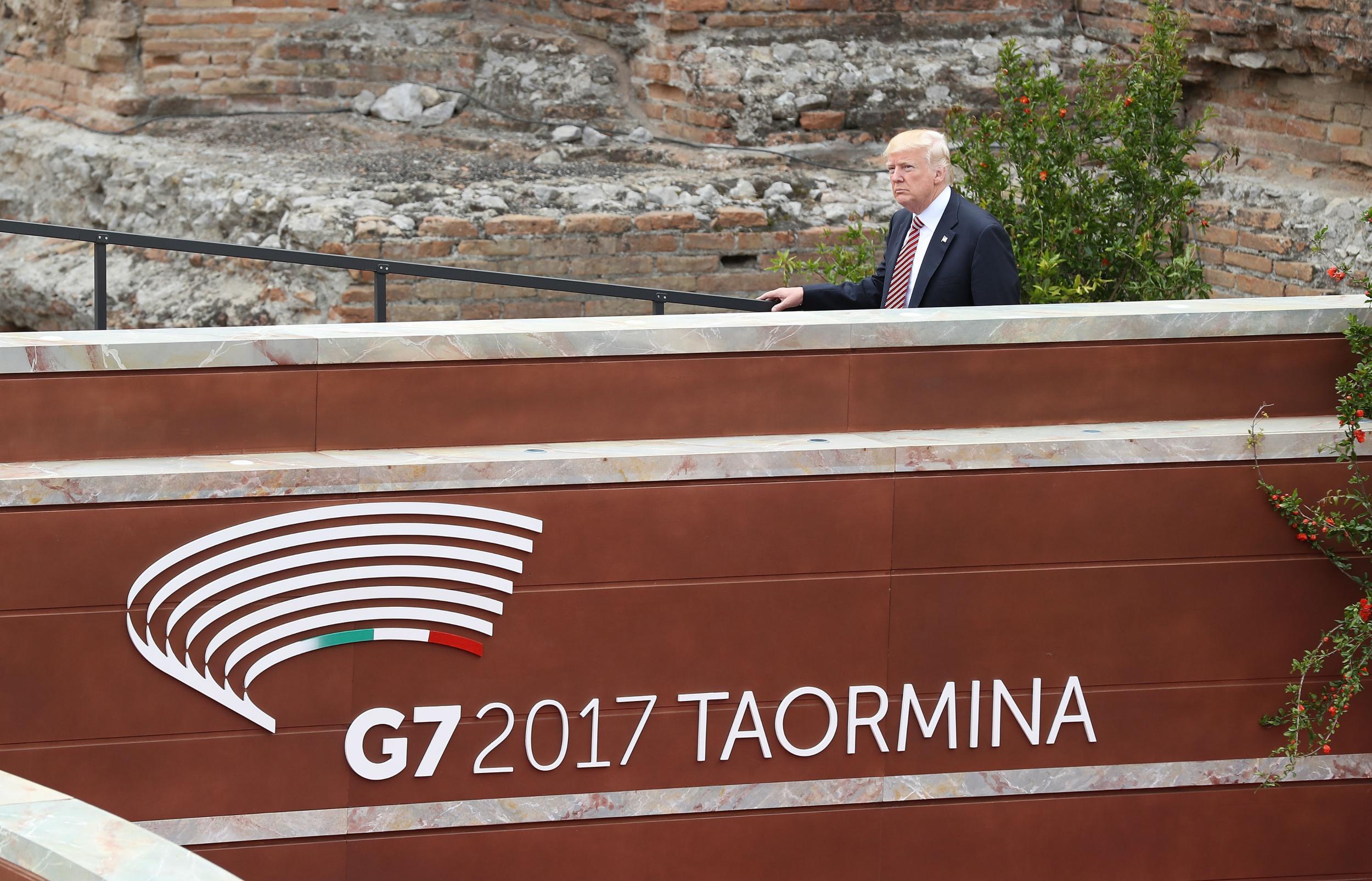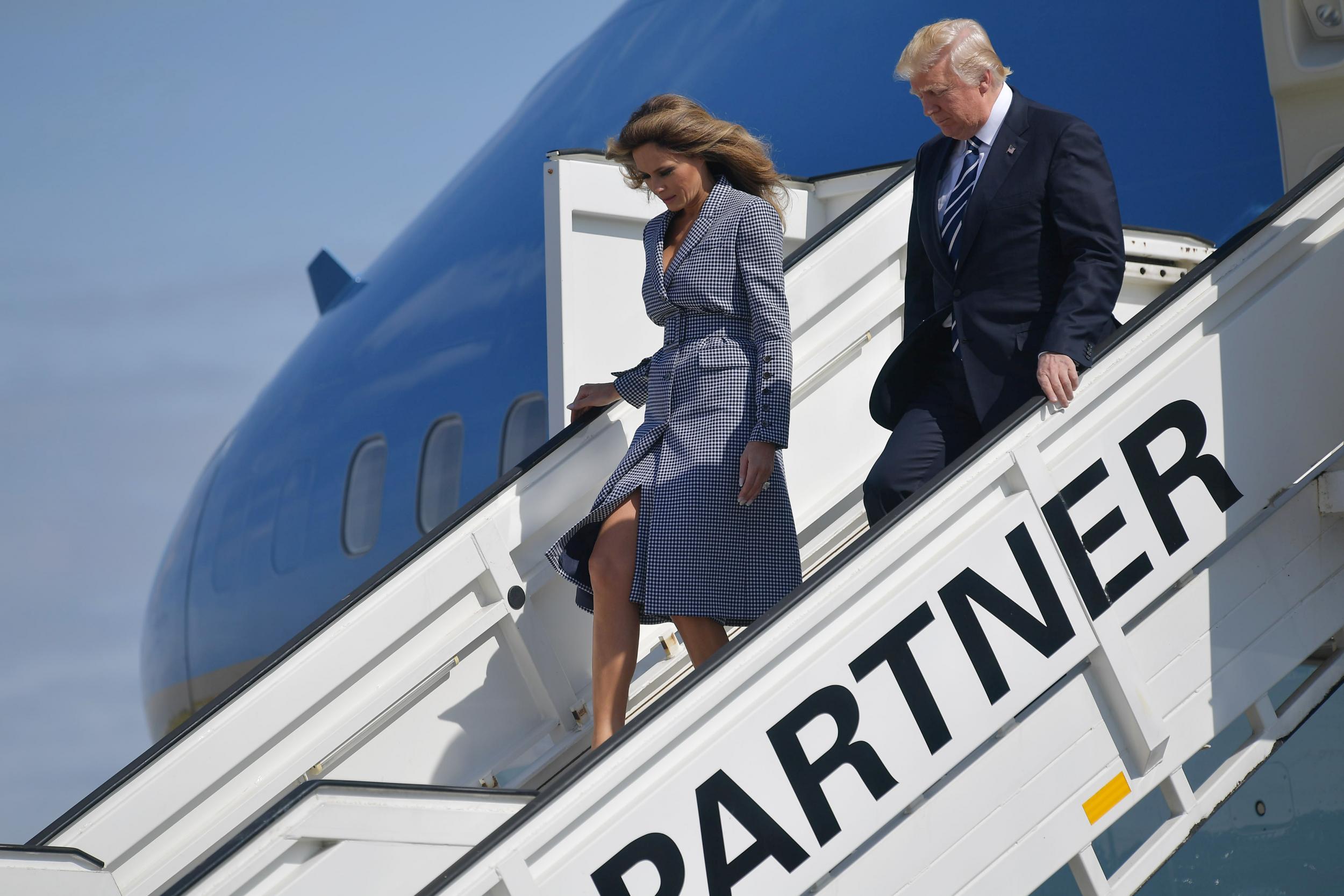Donald Trump's boorishness on the world stage has a lot to do with his failing agenda at home
When Trump scolded Nato leaders he was actually addressing his increasingly demoralised domestic base

Your support helps us to tell the story
From reproductive rights to climate change to Big Tech, The Independent is on the ground when the story is developing. Whether it's investigating the financials of Elon Musk's pro-Trump PAC or producing our latest documentary, 'The A Word', which shines a light on the American women fighting for reproductive rights, we know how important it is to parse out the facts from the messaging.
At such a critical moment in US history, we need reporters on the ground. Your donation allows us to keep sending journalists to speak to both sides of the story.
The Independent is trusted by Americans across the entire political spectrum. And unlike many other quality news outlets, we choose not to lock Americans out of our reporting and analysis with paywalls. We believe quality journalism should be available to everyone, paid for by those who can afford it.
Your support makes all the difference.The more things go kaflooey for Donald Trump at home, the trickier and less malleable he becomes for the rest of the world. This equation was surely apparent to anyone in his path in Brussels and Taormina last week – including the Prime Minister of Montenegro, who was physically repositioned by Trump at his most oafish as he barged to the front for a “family photo” at Nato.
Had anyone been hoping for a less testy Trump they were surely disappointed. At Nato, he might have recognised the sacrifices of nations much smaller than his fighting the Taliban in Afghanistan instead of delivering a scolding to virtually every other member nation allegedly for stiffing the American taxpayer in their contributions to the Alliance. He might also have refrained from calling the Germans “very bad” for being very good at selling their cars in America.
“Euro Trashed”, blared the front page of the Daily News in New York the following day: “Don shoves a Prime Minister, Insults Germany”.
But for Trump to be in a better mood, we need be nicer to him. Melania could start by not snatching her hand away from his. There were moments during his trip when it seemed as if the other leaders had stage-managed events to make him look foolish on tape. I am suspicious of Emmanuel Macron, the President of France; the way he walked straight for Trump at Nato and swerved at the last minute to greet Angela Merkel instead: not subtle.
With his shoulder pads and cockatiel hair, Trump does not look short on confidence. He is the leader of the most powerful nation on Earth. But we all see signs of a man chronically uncertain of how the rest of us perceive him. A confident Trump wouldn’t obsess over every cruel joke about him on Saturday Night Live. A confident Trump wouldn’t feel compelled to snipe petulantly at his every foe on Twitter. A confident Trump wouldn’t Sellotape his tie to his shirt.
He wouldn’t want our pity – that would negate the very essence of his political brand, “Trump the Strong”. But he shouldn’t worry: if Americans are generally protective of their presidents in rough times, I hazard that may not apply to him. Those who did not vote for him – that’s most of them – only get more disdainful. His supporters won’t pity him either because they are too busy spitting at those they think are out to hurt him: reporters, especially, and now German car makers too. Now even they may be having second thoughts.

Nate Silver of the the fivethirtyeight website gives us a clue as to why the President’s state of mind might be more fragile than ever. He queries the conventional wisdom that, whatever hits the fan in Washington, his core level of support remains unaffected.
“To the contrary, Trump’s base seems to be eroding,” Mr Silver reveals. “There’s been a considerable decline in the number of Americans who strongly approve of Trump, from a peak of around 30 per cent in February to just 21 or 22 per cent of the electorate now.”
He adds: “Far from having unconditional love from his base, Trump has already lost almost a third of his strong support.”
The loss stands to reason when you consider the progress Trump’s been making on things he promised voters. Everywhere he tries to go, he ends up hitting a wall – and not the one he wanted us to talk about, either. The most recent exhibit: federal judges again blocking his attempts to impose even a watered-down version of his ban on Muslims and Syrian refugees entering the country. The Supreme Court may have to deal with it, but that would be months away.
The pledge to repeal Obamacare is hardly in any less trouble after the Congressional Budget Office declared last week that even the new and improved version of its replacement, passed by the House, would mean 23 million more Americans losing their health insurance over ten years and premiums rising sharply for the elderly and the sick. Now the Senate must pass its own version of the bill: but don’t hold your breath. The Republicans have the slimmest majority in the upper chamber and are are deeply divided on the issue.
In the meantime, the White House has just sent a budget blueprint to the Hill that includes draconian cuts to all manner of programmes, including foreign aid, that stand no chance of getting congressional approval. By most accounts, it is a document that was dead on arrival.
To get things done in Washington, presidents need to have political strength, even when their party controls both chambers of Congress. Trump has less and less of that vital commodity. And part of the reason, of course, is the swiftly expanding investigation into Russia’s meddling in the 2016 election and what collusion there may have been between Moscow and his campaign. Add to that concern that Trump himself may have crossed a legal line asking heads of investigative agencies, including James Comey, the now sacked FBI director, to slow-march their probes.
We have no idea what either special counsel Robert Mueller or the various investigating committees on the Hill will find when all is said and done. But even if it is nothing of any real legal significance, it will have damaged Trump and his administration by compounding the paralysis of his agenda. Paralysis, not impeachment, may end up being his final downfall.
This is the Trump who came to Belgium and Italy. Were things going better at home, he might not have felt compelled to stand outside Nato and speak not really to the leaders around him or the world at large but rather to his base at home. The verbal beating he gave the allies was for their benefit, never mind statesmanship. If he is still refusing to commit to the Paris Treaty on climate change it is because he has to be more worried about his base than about the planet.
On Friday John Boehner, a former House speaker and once the most powerful Republican in town, averred that Trump had had some success on foreign affairs but that “everything else he’s done has been a complete disaster”. Few would disagree with the second part of that statement.
Join our commenting forum
Join thought-provoking conversations, follow other Independent readers and see their replies
Comments